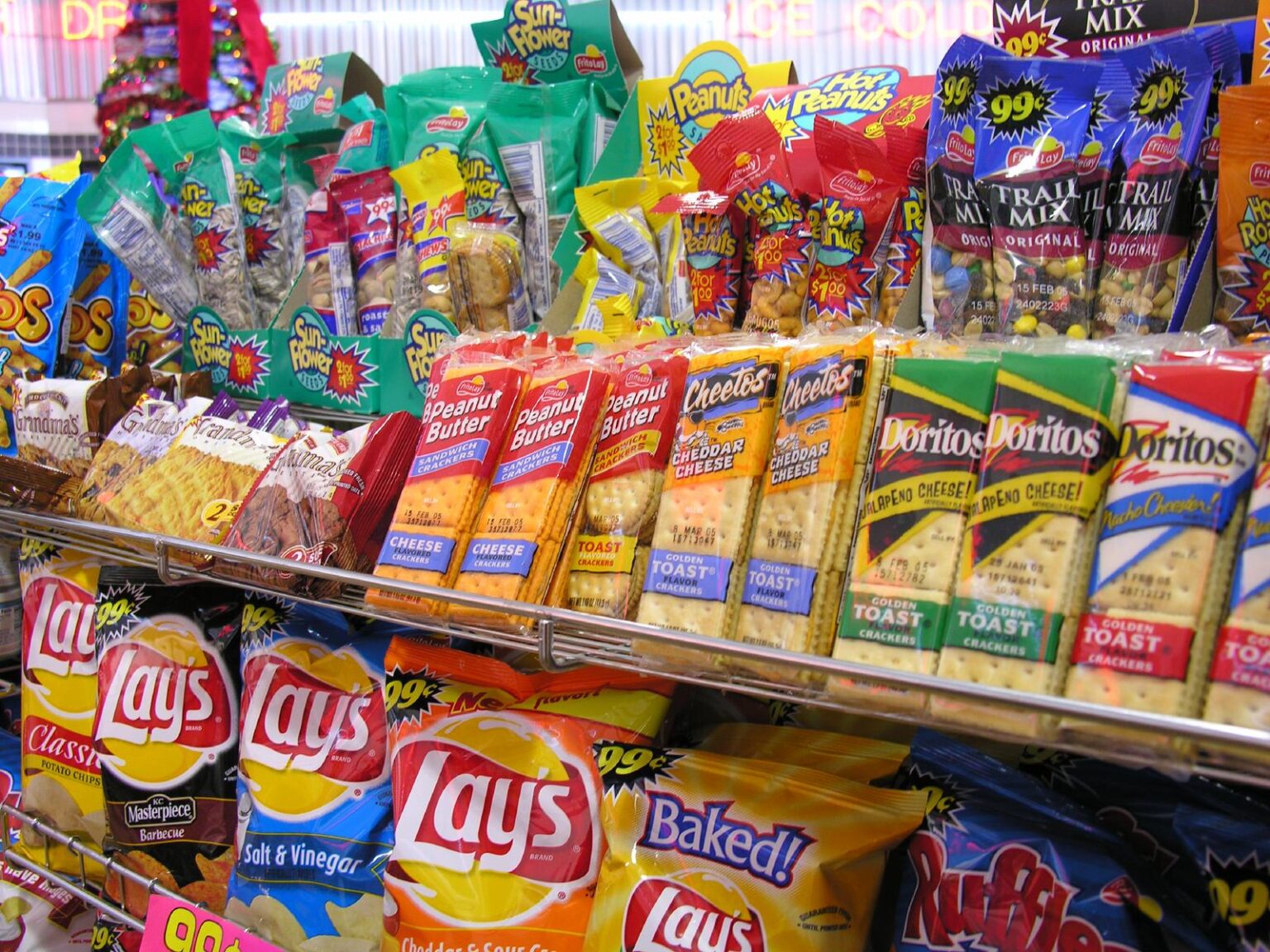Food systems are responsible for at least 15 percent of all global fossil fuel consumption, according to a major report launched ahead of the COP28 climate summit.
The analysis shows that the production, transport, and storage of food are driving greenhouse gas emissions equivalent to those of the EU and Russia combined.
Ultra processed foods like snacks, drinks and ready meals, along with chemical fertilisers made from natural gas, are singled out as major sources of pollution.
Published today (Thursday), the research comes weeks before global leaders gather in Dubai to discuss ways to limit catastrophic global heating. Food is set to be a major focus at this year’s annual climate conference, which is hosted by the United Arab Emirates (UAE) from November 30.
The Global Alliance for the Future of Food, a coalition of philanthropic organisations, and consultancy firm Dalberg Advisors published the report, which is titled: “Power Shift: Why We Need to Wean Industrial Food Systems Off Fossil Fuels”.
Its authors found that even if governments delivered on their 2030 climate pledges, by 2037 food-related fossil fuel use alone would blow the remaining portion of the 1.5C carbon budget, an estimate of the maximum amount of carbon dioxide emissions that can be emitted before tipping the planet into dangerous levels of global heating.
A third of the world’s food production is at risk from climate breakdown, and climate disasters are already increasing malnutrition in some parts of the world, according to UN scientists at the Food and Agriculture Organization (FAO). At the same time, food systems are also a major contributor to global warming, accounting for over a third of total emissions worldwide.
Scientists and campaigners have raised major concerns about the lack of global action ahead of the COP28 summit, in a year of devastating impacts from climate-related weather events. The UAE is one of the world’s 10 largest producers of oil, and is also investing heavily in petrochemicals.
Patty Fong, programme director of climate and health & well-being at the Global Alliance for the Future of Food, and contributor to the report, told DeSmog that phasing out fossil fuels was crucial to the food industry’s green transition.
“Industrial food systems have a fossil fuel problem,” she said. “We cannot transform food systems and make them climate friendly until we have weaned our food systems — alongside other economic sectors — off oil and gas.”
Fossil Fuel Lock-in
The meat and dairy industry’s high methane emissions are increasingly well known. But this is the first time that the food systems’ dependency on fossil fuels have been calculated in this way.
The report identifies multiple drivers for the fossil fuel dependency – from energy-intensive ultra processed foods like snacks, drinks and ready meals in high income countries, to the global reliance on fossil fuel-based chemicals for crop production.
It finds that the majority of fossil fuel consumption is in the processing and packaging stage (42 percent), and in retail consumption and waste (38 percent). Agriculture production accounts for 20 percent of energy use in food systems, with fossil fuel use to produce fertilisers expected to increase substantially through 2050.
Natural gas is the basis for chemical fertilisers and pesticides, which are used to increase the growth of crops and kill off pests. Plastic packaging is produced from natural gas and crude oil.
The International Energy Agency (IEA), the global energy watchdog, warns that petrochemicals could drive a third of all growth in oil demand by 2030 and half by 2050.
In the United States alone, the fossil fuel industry planned investments of over $164 billion in petrochemicals between 2016 and 2023. Forty percent of petrochemicals – which are produced from fossil fuels – are used in food-related plastics and fertilisers.
Fong said that the fossil fuel sector was heavily investing in these industries in the face of the increasing demands for a transition away from oil, gas and coal for energy.
“We know that this is where the petrochemical industry is placing their bets,” she said.
“Decarbonisation of energy is shifting overtime. But synthetic fertiliser use is growing. We have to head off this growth.”
Just Transition
The report finds that any fossil fuel phase-out plans will need to be backed by major shifts in consumption and food markets. This includes supporting diets to be less fossil fuel intensive – for example moving away from ultra-processed foods to healthier alternatives.
These kinds of changes will require tackling the power of major corporate interests in the food industry, which is dominated by a handful of petrochemical, plastics, pesticide and fertiliser companies with a vested interest in maintaining fossil fuel dependency, the report says. Powerful processing companies, for example, make vast profits from energy-intensive goods like fast food and soft drinks.
Investigations by DeSmog have found major efforts by food corporations and allied governments to frame the debate on food and agriculture emissions in terms of technological solutions over more transformative changes, or those that reference dietary change. DeSmog researchers have also documented the use of greenwashing terms by industry to capture discussions ahead of COP28.
Fong said she was concerned that current responses to food and energy crises had seen governments and corporations double down on certain fossil fuel use, such as fertilisers.
“Oil prices shot up, commodity prices shot up, and the response was ‘we just need better access to fertiliser’,” she said. “How do we instead use this to create more resilience in the food system?
“This is not just about decarbonising chemical fertilisers. It’s about transitioning to regenerative and agroecological practices.”
Additional research by Rachel Sherrington
Subscribe to our newsletter
Stay up to date with DeSmog news and alerts






